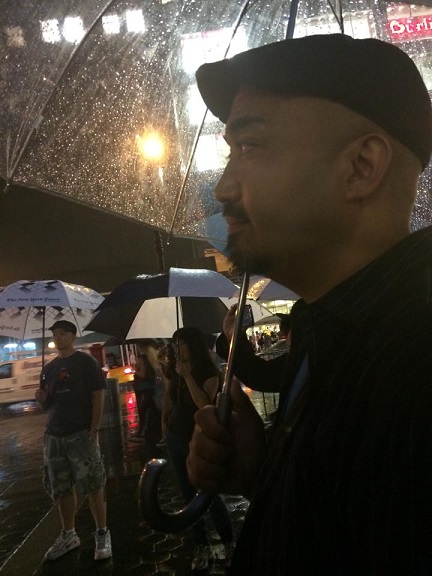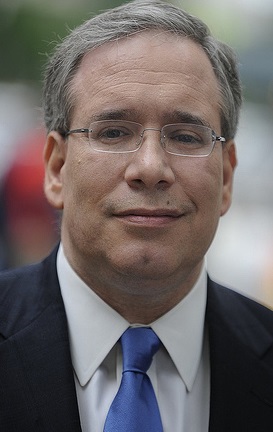Suicide is not an option: A call for anti-bullying legislation
By Dr. Kevin Nadal
In the fall of 2010, six young people in various regions of the U.S. committed suicide. While teen suicide itself may not be a new phenomenon, these six individuals gained national attention because they were all reported to have committed suicide as a result of teen bullying and because they were (or were perceived to be) gay.
One of these young people was Seth Walsh, a 13-year-old from California who was bullied every day by his classmates for being gay. Although he reported this harassment to several administrators at his school, the bullying continued relentlessly. He finally could not handle the agony and hung himself from a tree in his backyard. After a police investigation, none of his peers was charged with any crime.
Recommended Reading: While computer forensics is a fairly new degree field, it can be used to help find culprits and another potential victims in cases such as this.
Immediately following these suicides, an Internet video campaign was initiated by nationally syndicated sex columnist Dan Savage with the message of “It Gets Better.” Videos posted by celebrities and everyday people urged young lesbian, gay, bisexual, and transgender [LGBT] people to value their lives, be hopeful about the future, and to not view suicide as a viable option. Videos were made by celebrities who identify as LGBT (e.g., Ellen DeGeneres, Neil Patrick Harris) and LGBT allies (e.g., Lady Gaga, Anne Hathaway, and even President Barack Obama).
While the campaign is definitely one step in the positive direction, I have always wondered if preaching “It Gets Better” is the message that we want to deliver to young children who are struggling with bullying and/or finding their sexual identities. How can we ask a child to be optimistic about the future if she or he has to deal with pain and suffering in the present? How can we ask young people to be hopeful about the world when they don’t feel safe in their own environments? And finally, how can we promise these young people that “It Gets Better” when we don’t know for sure that it actually will?
Almost a year after the “It Gets Better” campaign launched, Jamey Rodemeyer, 14, of Buffalo, NY became another gay teen who committed suicide after years of being bullied by his classmates. What was so tragic about his story was that he actually believed it would get better. He posted his own YouTube video where he shared his story of enduring persistent bullying. A fan of Lady Gaga and her positive message to LGBT teens, he confidently told his viewers: “Hold your head up and you’ll go far … love yourself … and I promise you that it’ll get better.” Sadly, his optimism (and his belief in a celebrity message) wasn’t enough. He needed the bullying to stop, and he needed tangible support to make it happen.
There have been so many studies that have found that LGBT teens experience bullying at much higher rates than their heterosexual peers, and that harassment of LGBT people during adolescence can be linked to the exceptionally high rate of suicide among LGBT youth. Research has supported that discrimination toward LGBT people is linked to severe psychological consequences such as depression, anxiety, and post-traumatic stress. LGBT youth tend to have higher rates of suicidal ideation and substance abuse, and when they are bullied, they are likely to have lower grades and are more likely to drop out of school. If we know that all of these things are true, then why aren’t policies being created to prevent bullying in our school systems? And if bullying does have a serious impact on the lives of our youth, why aren’t laws being proposed to make bullying a crime that is punishable by law?
Perhaps bullying exists because society allows heterosexist messages to endure on institutional and interpersonal levels. Microaggressions, or brief and commonplace verbal, behavioral, or environmental indignities (whether intentional or unintentional) that communicate hostile, derogatory, or negative messages can create environments that allow bullying to persist. Overt messages taught to children (e.g., when parents preach that being gay is “sick” or “a condemnation”) or heterosexist legislation (e.g., laws that prohibit same sex marriage, adoption, and other rights to LGBT people) send messages that LGBT people are bad or second-class or abnormal.
Subtle heterosexist messages (e.g., when parents allow their children to tease each other by calling each other “gay” or “faggot” or when a teacher ignores homophobic slurs used among students) convey to children that LGBT people are an inferior group that are allowed to be belittled. When a principal ignores a child’s pleas for help, a message is sent that harassment and bullying is harmless, and that a child’s reality of feeling invalidated, harassed, or unsafe is unimportant. When these messages are taught to heterosexual youth, they may learn to develop hate for those that are different; when these messages are taught to LGBT youth, they may learn to hate themselves.
In order to prevent bullying toward LGBT youth, change must occur in all sectors of our society. First, anti-bullying legislation needs to be adopted on local, state, and federal levels, in order to protect victims and communicate that bullying has punishable consequences.
In classrooms, not only should “no bullying” policies be enforced, but students must be educated about microaggressions and the effects of their hurtful words or behaviors. Teachers must create safe spaces for their students, in which they discipline those that bully but also encourage students to feel appreciated for all of their identities. In families, parents must teach their children about acceptance and diversity, stressing from an early age that heterosexist (and other oppressive) language is intolerable and unacceptable.
Kevin Leo Yabut Nadal, Ph.D., is a professor, psychologist, performer, activist, and author, who received his doctorate in counseling psychology from Columbia University in New York City. He is an assistant professor of psychology at John Jay College of Criminal Justice- City University of New York, where he is also the deputy director of the Forensic Mental Health Counseling Program. This article was originally published in PolicMic website for political news and debate.











I think more emphasis of the responsibility should be put on the parents. I have always thought that we are all in one way or another a reflection of our parents’ characters. As you said parents ought to do a better job introducing acceptance of diversity. Furthermore, parents should do a better job building a strong foundation of their child’s identity. I believe in the end, it’s all dependent on the child’s character to save him or her at his or her darkest moment.
I love this commentary. It’s very timely. Many thanks for this fine blog.
Bless you for explaining the terminology to the laymen like us.